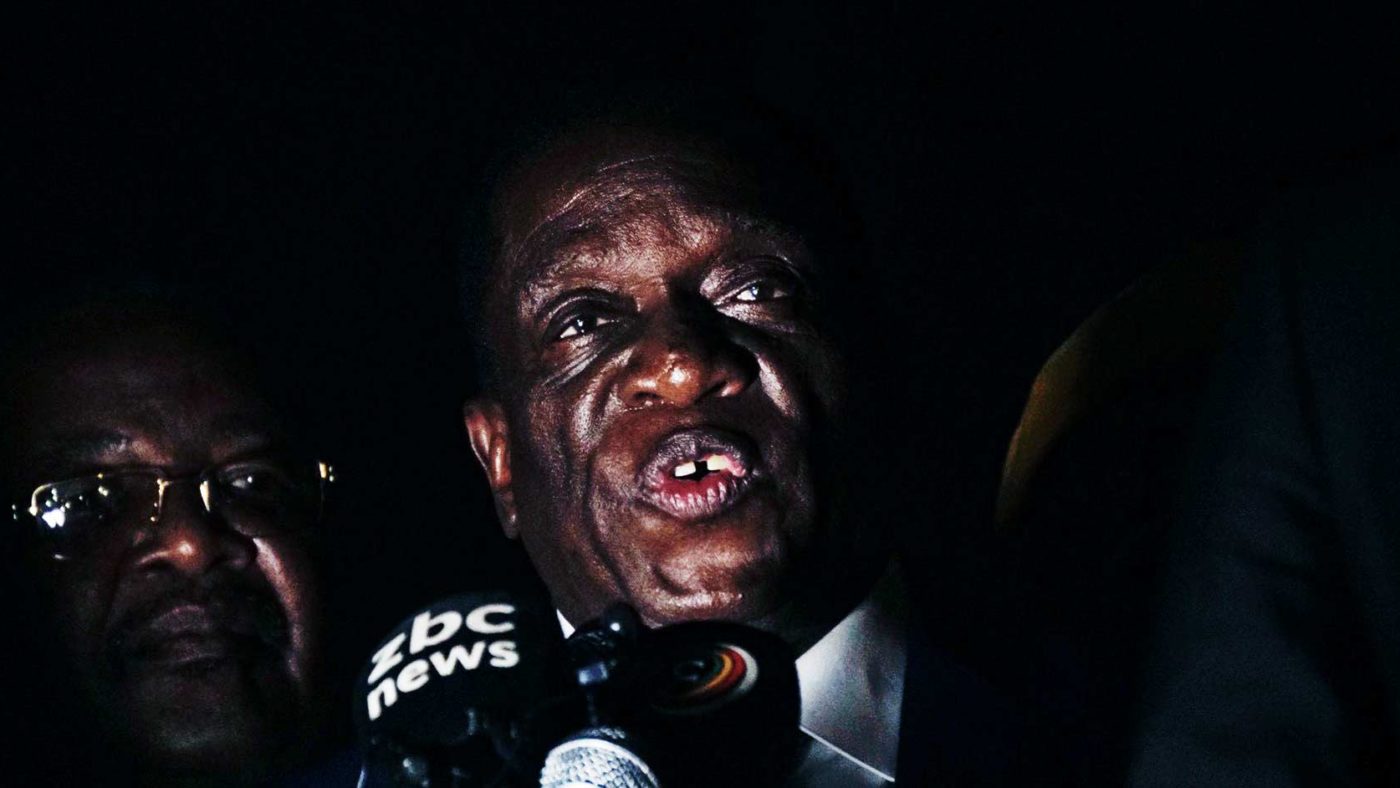Hope and optimism were everywhere when I visited Zimbabwe in 1980, shortly after the elections which swept Robert Mugabe to power. I was reminded of that visit as I watched the euphoric faces of the crowds, last week, as they took to the streets to celebrate the same man’s resignation. But will the peace and prosperity that I witnessed in 1980 now return to the country – or is this power switch simply another “changing of the guard”?
In 1980, I was working for Africa Confidential – a political and economic newsletter – and went on holiday to Zimbabwe with an old friend and member of the Anglo/Rhodesian society. We stayed in Harare with Brigadier Baring- Gould, grandson of the Rev Sabine Baring-Gould, an Anglican priest and hymn writer, the best-known being “Onward, Christian Soldiers” and “Now the Day Is Over“. The Baring-Goulds, staunch supporters of the deposed Ian Smith, were already planning their move to South Africa.
Without telling the Baring-Goulds, we visited Silveira House, a renowned Leadership Training and Development Centre founded by Father Dove, a Catholic Priest of the Society of Jesus. Father Dove ran civic education programs on youth, trade unions and agriculture, to promote the participation of Africans who had been excluded from Zimbabwe’s political and economic system.
It was at the heart of the social transformation agenda in the country and nurtured many prominent trade union leaders and activists. Morgan Tsvangirai, former Zimbabwean Prime Minsister, and Frederick Chiluba, the former President of Zambia, were both trained at the Centre, and, in 1974 – shortly before being exiled – Robert Mugabe addressed a youth and workers group there.
At lunch during our visit my friend sat next to Sabina Mugabe, Robert Mugabe’s sister (which was the talk of Berkshire when we returned to England), and I talked to the gentle and inspirational Father Dove about the independence struggle. Silveira House is still going strong, and recently celebrated its half centenary of partnerships with the impoverished communities in Zimbabwe.
The farm where we stayed, however, an idyllic place north of Harare, now lies in ruins. I remember riding through field after field of tobacco in hot sun all those years ago. But after it was taken over by war veterans 20 years after our visit, these no longer exist. Our hosts were forced out during a violent raid in which our hostess, Felicity, was knocked over and beaten, her daughter was forced to escape through a window clutching her baby, and the farm was razed to the ground.
It is now a decayed husk – a reminder of the destruction wreaked by Mugabe and his followers during the farm expropriation and resettlement drive.
One of those followers was a certain Emmerson Mnangagwa, whom I was told during my stay was “a very dangerous man”. I was also told to warn the British Government and my colleagues back home about it. Nearly four decades later, that warning is resonating loudly.
Mnangagwa trained as a guerilla in Egypt and China in the Sixties, and fought ferociously during the liberation struggle. After independence, the man who is also known as The Crocodile for his political cunning became Minister of State Security in Mugabe’s first government. He is widely suspected of being behind the Gukurahundi massacre, in 1983-84, of more than 20,000 Ndebele civilians. In early 2000, he supported the violent seizure of white-owned farms – such as the one I stayed on in Mvurwi. And now that “dangerous man” is President of Zimbabwe.
There are cheering crowds. But is Mnangagwa really the change the country is looking for? He was Mugabe’s right-hand man for decades, only falling out of favour when his political ambitions tangled with those of Mugabe’s wife Grace.
For one thing, Mnangagwa, unlike Mugabe, is a pragmatist who knows he needs the help of the international community. Given that that there is currently 90 per cent unemployment in Zimbabwe, and urgent funds are needed to fix power, water and the dilapidated infrastructure, the new president knows he has little choice but to rely on donors such the International Monetary Fund and the World Bank for help. And with elections due next year, any international offers of aid could be made on the condition that a free and democratic ballot take place, monitored by the United Nations and the EU.
But can he be trusted to play along? Given Mnangagwa’s record of disdain for democracy and aversion to human rights, it’s anyone’s guess what he might do next. There’s a strong possibility that the opposition could win the elections – so what’s to stop the new president from not holding any. And then what? With the Crocodile in control, it’s hard to be quite as optimistic about Zimbabwe’s future as we were in 1980.


